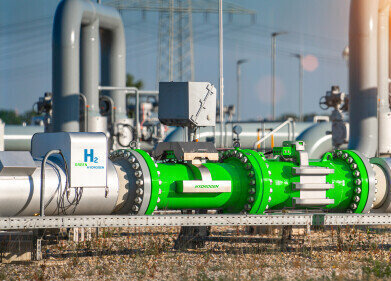Sustainable aviation fuel (SAF)
5 Uses of Biofuels
Mar 19 2021
As a clean and renewable source of fuel, biofuels are a credible alternative to fossil fuels. Since they’re created from organic matter (biomass), they can be easily replenished, while the low emissions associated with their combustion means they are an attractive prospect for eco-conscious business owners and private citizens. But what exactly are they used for? Here are five of the most common applications of biofuels being practised today:
Heating
Primary biofuels – or materials that are still in their raw state, without processing or treatment – are a common form of heating homes in developing countries where no alternative fuel source is available. While the environmental profile of these types of biofuels is not as desirable as it could be, secondary biofuels that have been processed in a refinery can serve as an efficient and eco-friendly alternative to the natural gas used to heat many homes in the western world, too.
Transport
Biofuels such as bioethanol and biodiesel can be used as a substitute or as an additive to traditional sources of fuel for vehicles like cars and buses. Not only do these alternatives boost fuel efficiency, but they reduce emissions, as well. However, not all vehicles in the UK are equipped to handle biofuels on their own, while analysing them to determine concentrations of sulphur, chlorine and other impurities is another key consideration for the biofuels used in road transport.
Aviation
Air travel is another major contributor to the harmful emissions that cause pollution and contribute to climate change. For that reason, many airlines have been researching how biofuels can be used in jet engines to enhance their environmental credentials. However, it should be noted that its unique properties make biodiesel unsuitable for use in the aviation industry. The article Analysing Jet fuel for Biofuel contaminants - safety first carries more information on this topic for interested parties.
Lubrication
Regardless of the industry or sector in which it is employed, a piece of machinery must be maintained and lubricated to ensure it runs smoothly and enjoys as long a lifespan as possible. This role has historically been fuelled by diesel-based and oil-based lubricants, which obviously entail the same damaging consequences for the environment as all other applications of fossil fuels. Biofuels can provide a more sustainable alternative which is also more cost-effective.
Oil clean-up operations
Oil spillages are a sad but inevitable occurrence which happen periodically in the world of oil extraction, distribution and storage. When they do take place, they can cause devastating harm to the ecosystems which they contaminate and the animals that call them home. Thankfully, biofuels have been demonstrated to effectively address this problem, since the methyl esters contained in the fuel source is a powerful solvent that can serve as a washing agent for contaminated shorelines.
Digital Edition
PIN 26.1 Feb/Mar 2025
March 2025
Analytical Instrumentation - Elemental Analysis for Quality and Process Control at Refineries, for Lubricants and Wear Metals in Engine Oils - Synthetic Lubricants: New Developments - Scaling...
View all digital editions
Events
Apr 22 2025 Hammamet, Tunisia
Apr 22 2025 Kintex, South Korea
Solar & Energy Storage Summit 2025
Apr 23 2025 Denver, CO, USA
Apr 27 2025 Portland, OR, USA
Apr 29 2025 Mumbai, India



















